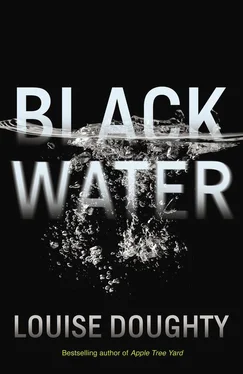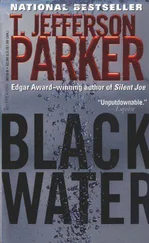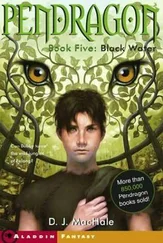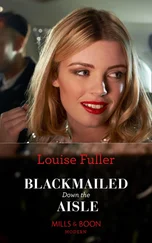The dirt track was steep right from the very beginning and hard work. Harper’s feet slipped on the loose scree. They didn’t have proper leather boots like they had seen some of the serious climbers wearing — he and Bud were in the cloth shoes they wore for physical education at school. The thin rubber soles did nothing to protect them from the pebbles and sharp stones on the path.
Poppa went ahead, his long legs taking a stride that equalled four small steps of theirs. He and Bud began to play a desultory game, hanging back, kicking at loose stones on the path, kicking them forward, running up to them, kicking them forward again. He noticed how unpredictable the trajectory of each stone was. A smooth one could shoot far ahead even if it was small and light. An awkward-shaped, multiple-sided one would sometimes tumble twice then lodge in the dirt, however hard you kicked it. Some went in a straight line. Some somersaulted off the edge of the path into the gully below: the path was bordered by a steep, wooded rise on one side and a plummet down to the riverbed on the other.
After a short while, Poppa stopped, withdrew a handkerchief and mopped his brow, then turned and said, ‘C’mon you two, you’re idling. We want to make that waterfall before we need to stop and eat.’ He was carrying a knapsack with a metal water bottle and three small sandwiches. The thought of a sandwich, Harper realised, was the only thing that would get him up the mountain.
At that point, a middle-aged couple came down the path. They must have risen early if they had been up to the fall and were on the descent already. They stared at Poppa as they approached, slowing their pace. They both had those leather boots on, with stripy laces, thick socks, long shorts and walking sticks. The man was white-haired, wearing glasses; the woman had her hair in a headscarf. Poppa moved to one side on the narrow path, politely, to let them pass. They stared at him, then their gazes shifted to Harper and Bud, and Harper saw on their faces the calculation that people often made when they were out as a family: Poppa black, Bud black but light-skinned — and him, something hard to guess at. Part-something.
Even though Poppa had moved to one side to let them pass, they didn’t say thank you or smile at him. Instead, the woman said lightly, to her husband, as they passed Bud who was trailing third, ‘Well, I can’t say I realised this was the coloured path.’
The three of them stood still for a while after the couple disappeared down the path, around the bend, then he walked up to Poppa and said, ‘There wasn’t a sign.’
Poppa’s face was set. ‘No, son,’ he said, ‘there’s no sign because there isn’t any coloured path and there isn’t any whites-only path here either, that woman just thought there should be. Take no notice, she’s just ignorant.’ He looked up the path and passed his hand over his face, then muttered, ‘As if this mountain isn’t steep enough.’
Then Bud ran up to them, his hand outstretched, calling, ‘Poppa!’ and Poppa turned and took his hand firmly, his large one enfolding Bud’s small one, and said softly, ‘Come along, son.’
They all set off again, Bud and Poppa walking ahead of him, holding hands, and Harper found himself hanging back. He kicked at stones on his own. After a few more paces, Poppa turned his head to the side and without looking round properly, said over his shoulder, still walking, ‘You too, Slim Jim, you too,’ and he ran ahead and took Poppa’s other hand, and they walked like that for a few minutes more until the path narrowed too much for them to walk side by side and he and Bud ran ahead gleefully, jumping and shouting, ‘Who’s behind now, Poppa!’ and the moment with the couple, the looks, was gone.
All three of them were panting as they neared the top of the path, and then they stopped for a while and sat on a plain plank bench by the side and looked out through the dense cover of trees where the sun struck through in brilliant beams. They took it in turn to drink from the water bottle. Ahead of them, they could see that the path forked. To the right, it widened out — the left-hand fork was steep and narrow.
Poppa was studying the pencil-drawn map he had made after looking at the visitors’ information in the lodge at the bottom of the hill.
‘We can go that way,’ he said, pointing to the right-hand fork, ‘which is easier but takes a little longer, and goes up to the official viewing point, or we can go that way. Steeper but shorter I think.’
‘Shorter! Shorter!’ said Bud.
‘Shorter doesn’t mean easier, son.’
In Bud’s world it did.
Poppa looked down at his map and frowned at his own handwriting, turned it upside down and back again, the full three hundred and sixty degrees.
There were voices then, and a moment later, a group of eight or nine white people, two families with older children, came down the wider, easier path. Poppa nodded at them as they passed. One of the men nodded back. The rest of the group ignored him. ‘Okay,’ Poppa said after they had gone, ‘let’s try that way.’ He pointed to the narrow, steep path, the left-hand path.
By the time they were halfway up, they were bad-tempered with each other again. The terrain was steep and at intervals involved clambering over boulders that blocked the narrow path: Poppa hauled Bud up by his arm a couple of times — Harper refused help. The trees and undergrowth of ferns and bushes were so dense that they heard the thunder of the fall before they could see it: and then at a point about halfway up, there was a space where there was a gap in the trees and, yes — there it was, as if suspended mid-air, the magnificent crash of brilliant water, frothing and foaming as it fell.
All three of them stopped to look: the relentlessness of it, the continuous descent of all that water. It carried the eye down as a passing train carries the eye along but just kept falling and falling, so densely white in the centre it seemed blue, the fine mist of spray all around, hanging in the air: and most miraculous of all — the air full of small rainbows, faint small rainbows flung in all directions in the mist.
‘Whoa. .’ breathed Bud. He was not a boy who was easily impressed by natural wonders.
Harper looked up, to where the top of the fall was just visible high above them, where the water shot out horizontally, foaming ferociously, such was its force and power. ‘We really going all the way to the top?’
‘You bet,’ Poppa replied, mopping his brow. ‘There’ll be somewhere up there we can sit down, have the sandwiches. We should have brought Nina, what do you reckon?’
Harper pulled a face. ‘It’s going to get slippy up top, the rocks will be wet.’
‘Well, you two take care.’
The path became steeper and steeper: their pace became slower and slower. At times he doubted it was really a path at all, just a scramble through the trees over boulders made treacherous with spray water and rotting brown ferns. We should have taken the longer path, he thought, never mind how many looks we got, but he didn’t share this thought with Poppa or Bud.
It must have been an hour before they reached the top, and then they emerged into a clearing that was a little way upriver from the edge of the fall. At this point, the river turned just before it fell: he was disappointed you couldn’t see the edge. Bet you can from the official viewing point, he thought.
You couldn’t see it but you could hear it, the thunder of it — and feel it too; the air in the clearing was hung with fine spray. A large, wet stone made a natural platform that went up to the river’s edge and here the river was so wide the water was very shallow — it would be easy to wade across to the other side: it would come only partway up your calves, he thought. The widening of the river meant it slipped more slowly at this point. There was no frothing or foaming here; the water was completely calm: you could see the gleaming brown and grey rocks on the bed. Right by the edge closest to them, there was a natural pool made by a dip in the riverbed. And here, miraculously, the water was still. Around the edge of the pool, it flowed in small eddies downstream towards the fall, but inside the pool, the water was motionless and clear as glass.
Читать дальше












